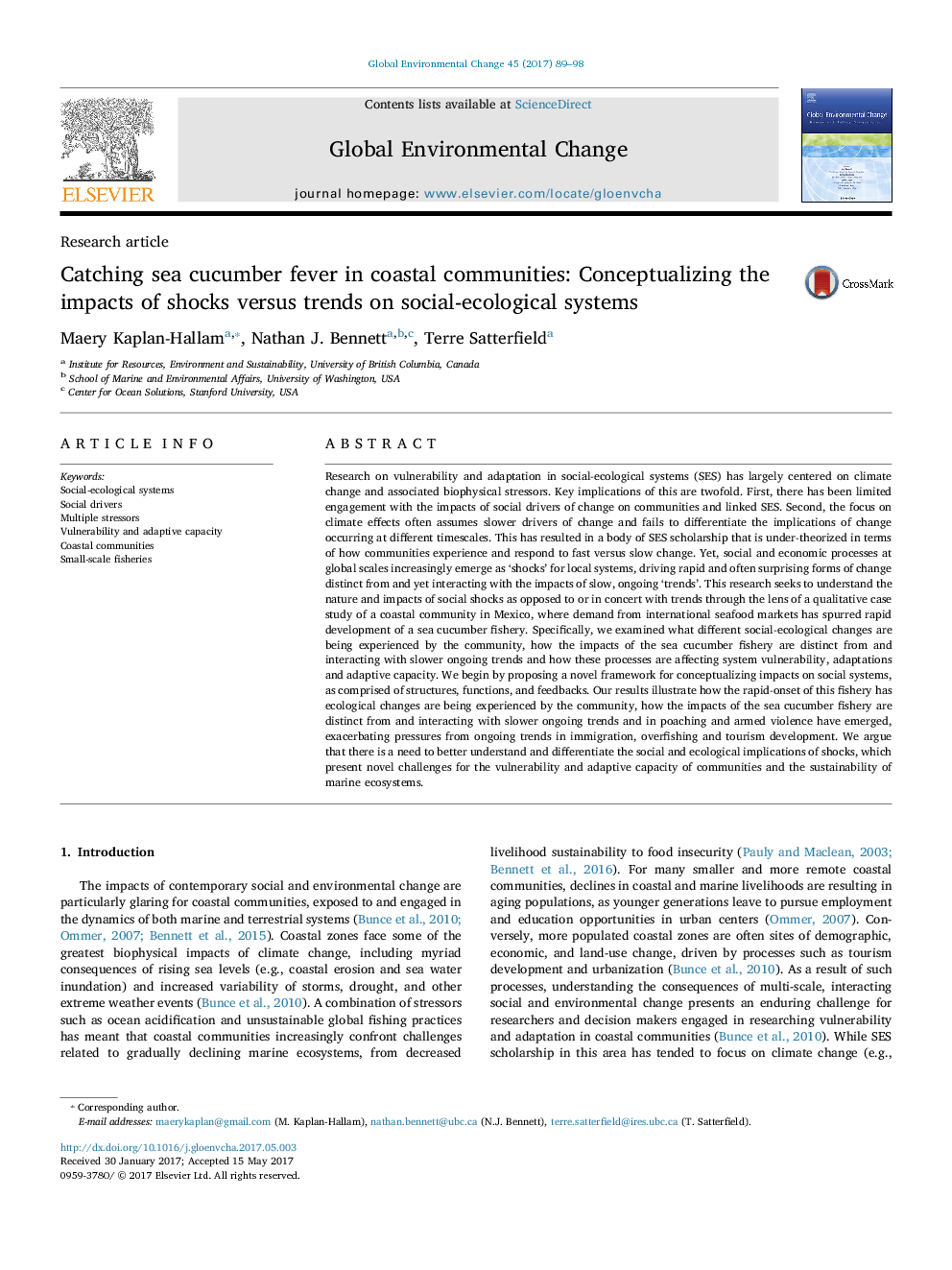ترجمه فارسی عنوان مقاله
ابتلا به تب خال دریا در جوامع ساحلی: مفهوم سازی تأثیرات شوک ها در مقایسه با روند در سیستم های اجتماعی-زیست محیطی
عنوان انگلیسی
Catching sea cucumber fever in coastal communities: Conceptualizing the impacts of shocks versus trends on social-ecological systems
| کد مقاله | سال انتشار | تعداد صفحات مقاله انگلیسی |
|---|---|---|
| 154649 | 2017 | 10 صفحه PDF |
منبع

Publisher : Elsevier - Science Direct (الزویر - ساینس دایرکت)
Journal : Global Environmental Change, Volume 45, July 2017, Pages 89-98
ترجمه کلمات کلیدی
سیستم های اجتماعی-زیست محیطی، رانندگان اجتماعی، تنش های چندگانه، آسیب پذیری و ظرفیت سازگاری، جوامع ساحلی، ماهیگیری کوچک
کلمات کلیدی انگلیسی
Social-ecological systems; Social drivers; Multiple stressors; Vulnerability and adaptive capacity; Coastal communities; Small-scale fisheries;

